A 5-month-old boy was noted by his parents to be constipated.
They called his pediatrician (Dr. K), and were given reassurance.
Over the next few months, he had ongoing issues with constipation.
At 13 months, his mother noted a distended abdomen.
Dr. K ordered an ultrasound and KUB.
A large abdominal mass was noted, which was felt to be impacted stool.
He was treated with enemas and stool softeners.
The mass resolved and he initially felt much better.
At 4 years old, he again had constipation.
He was referred to the pediatric GI clinic at an academic children’s hospital.
A nurse practitioner (Ms. S) saw him and noted a tight anal ring at 5-7cm.
Enemas and stool softeners were continued.
The following year, his family asked for a 2nd opinion at a different pediatric hospital.
Imaging was done, and showed a large abdominal mass.
Biopsies were done and he was diagnosed with medulloepithelioma arising from a large sacral teratoma.
Chemotherapy was started.
The cancer had metastasized to his liver and lungs.
He underwent numerous surgeries including a colostomy, wedge resection of the liver, and abdominoperineal resection.
Tragically, he died just short of his 7th birthday.
Join thousands of doctors and attorneys on the email list.
We just passed 14,000 total subscribers today!
The patient’s family contacted a law firm.
They sued the nurse practitioner at the pediatric GI clinic, and the hospital itself.
Notably, they did not sue the pediatrician nor any doctor from the pediatric GI clinic (it does not appear there was any physician supervision).
The plaintiffs hired a pediatric GI expert witness.
The primary criticism was the failure to recognize that anal stenosis usually presents much sooner than 4 years old, and that it should be <3cm from the orifice (not 5-7cm as in this case).
Improve your medicolegal expertise by buying a subscription.
You’ll get a new case every week and access to hundreds of prior cases.
Reviewing cases from across the entire breadth of medicine will make you a better doctor.
A pediatric heme/onc physician expert was also hired:
The lawsuit was filed in 2018.
The nurse practitioner was removed from the lawsuit in 2022.
The rest of the case was withdrawn in 2023, presumably after settlements were reached.
MedMalReviewer Analysis:
I was very surprised that the plaintiffs did not name the pediatrician as a defendant. She managed his constipation for years, including review of ultrasound imaging that raised the possibility of a mass, which was written off as stool. My best guess is that the parents had a strong therapeutic alliance with the pediatrician both before and after the cancer diagnosis, and didn’t have the heart to sue her. It was much easier to sue the NP, who they had only seen one time many years ago.
Another unusual aspect of this case is the fact that a physician expert witness was hired to sue a nurse practitioner. Generally, the plaintiff is required to use an expert of the same training as the defendant. A physician is usually not allowed to opine against an NP. However, the defense never raised this issue or tried to have the lawsuit dismissed.
I will admit that I was not very familiar with medulloepithelioma prior to reviewing this lawsuit. It is an embryonal tumor that arises from neuroepithelial tissue. It usually arises in the ciliary body of the eye around 5 years old. I wonder if the pelvic teratoma contained a poorly developed eye, which gave rise to this rare form of brain cancer. This is an uncommon anatomical location for a rare cancer, but this paper is a good overview of the topic.
It is rare to see an expert cite sources, and is a sign that they truly developed this opinion on their own rather than simply signing off on a document written by an attorney. One of the major flaws of the legal system is that an unethical expert witness making false claims is given the same standing as an expert making evidence-based assessments. A jury is left to sort out which expert is correct. It’s very challenging for lay people to make that determination, and the decision is often made based on other factors (who is the smoothest public speaker, has the most affable personality, etc…).

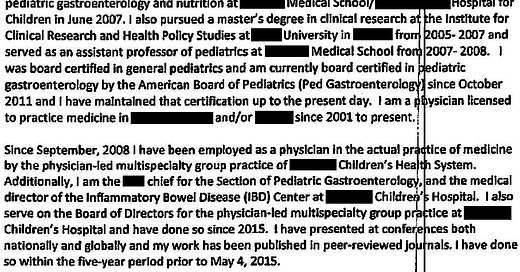



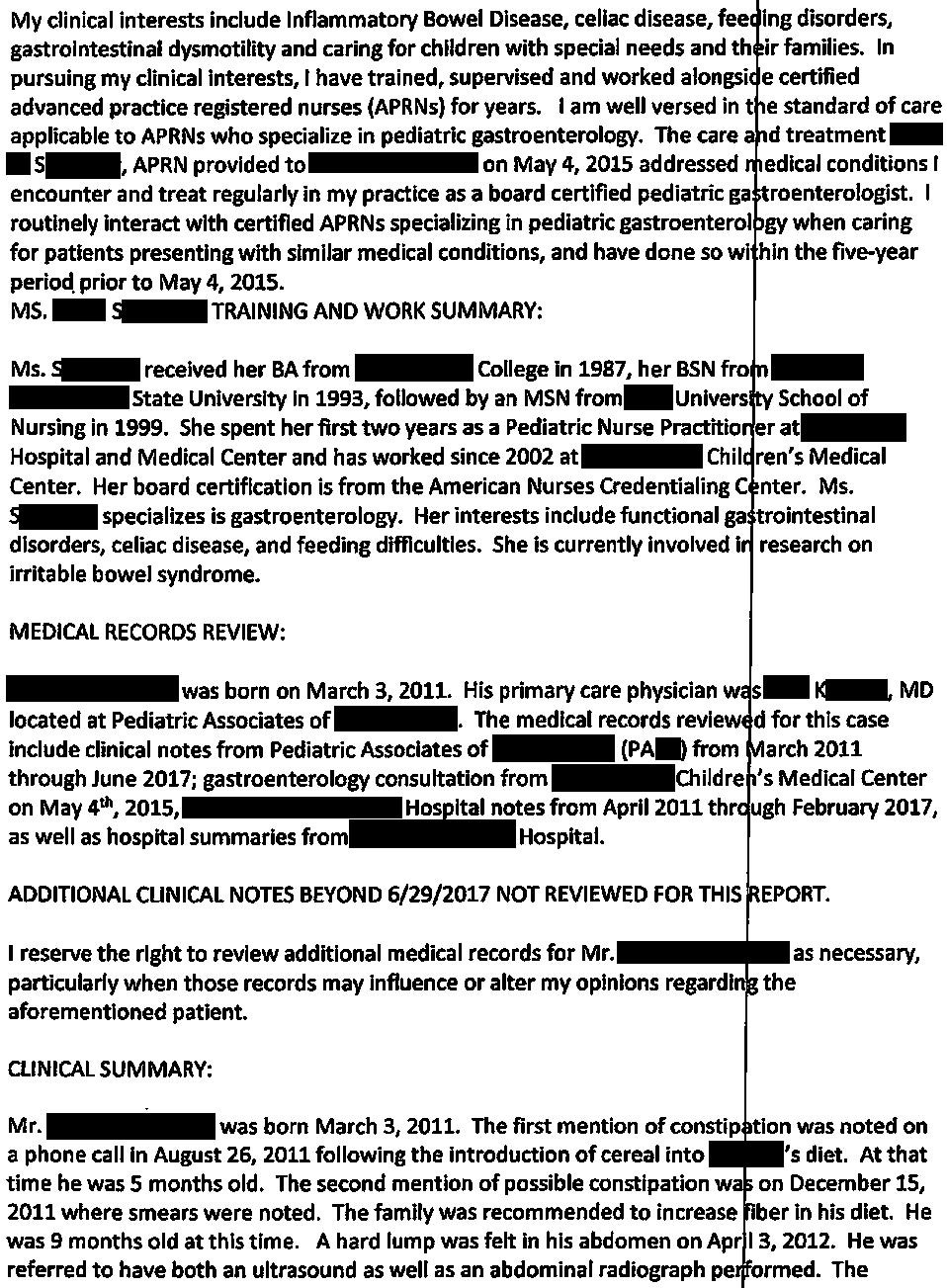
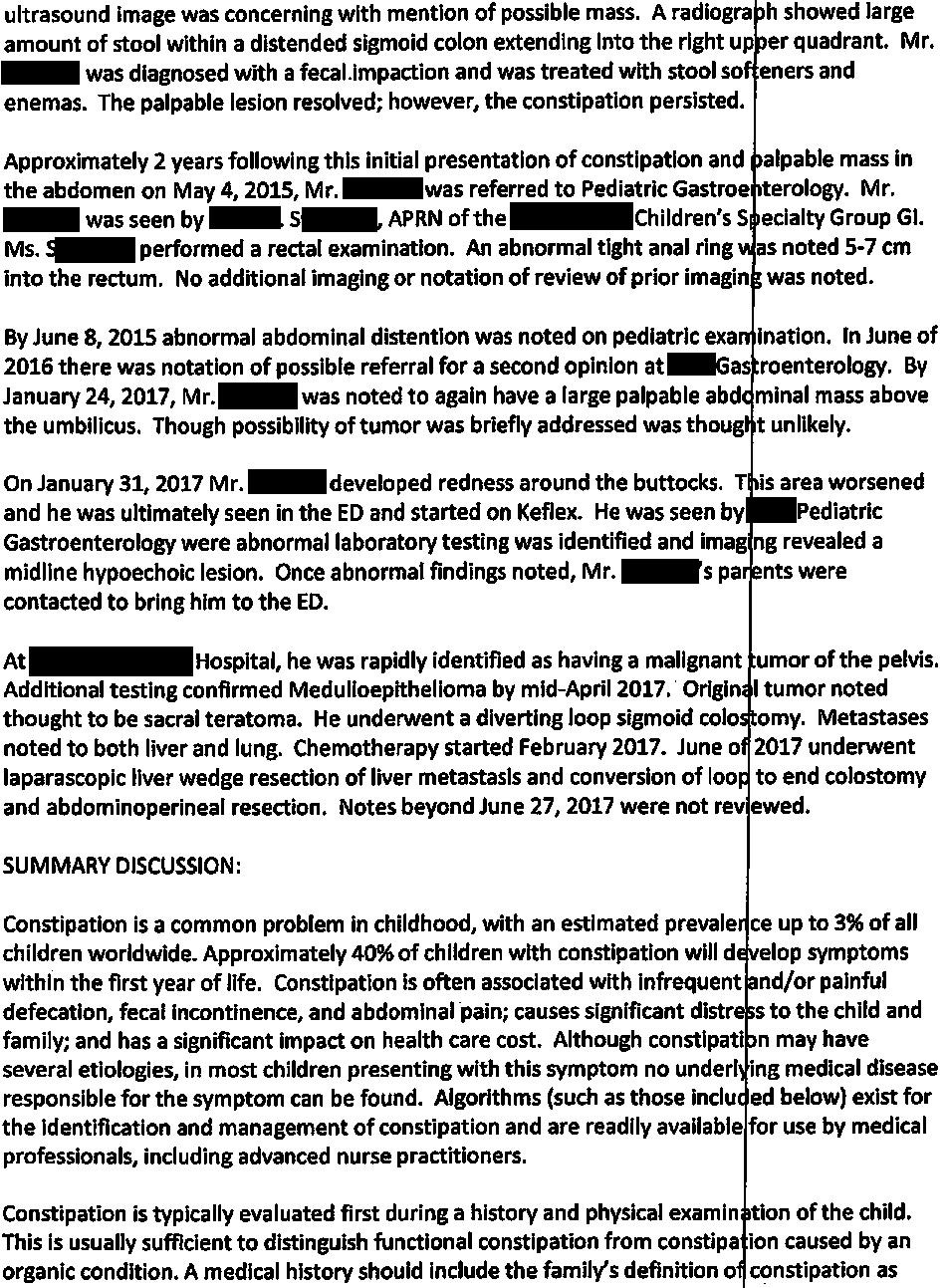
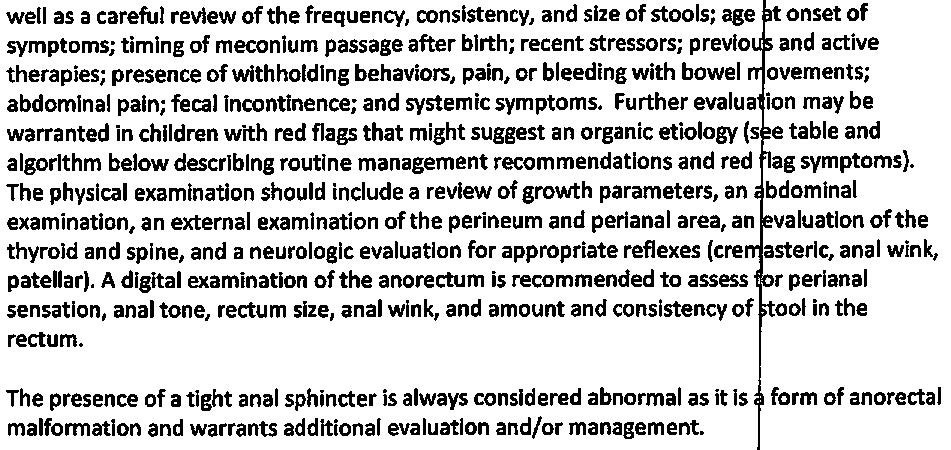

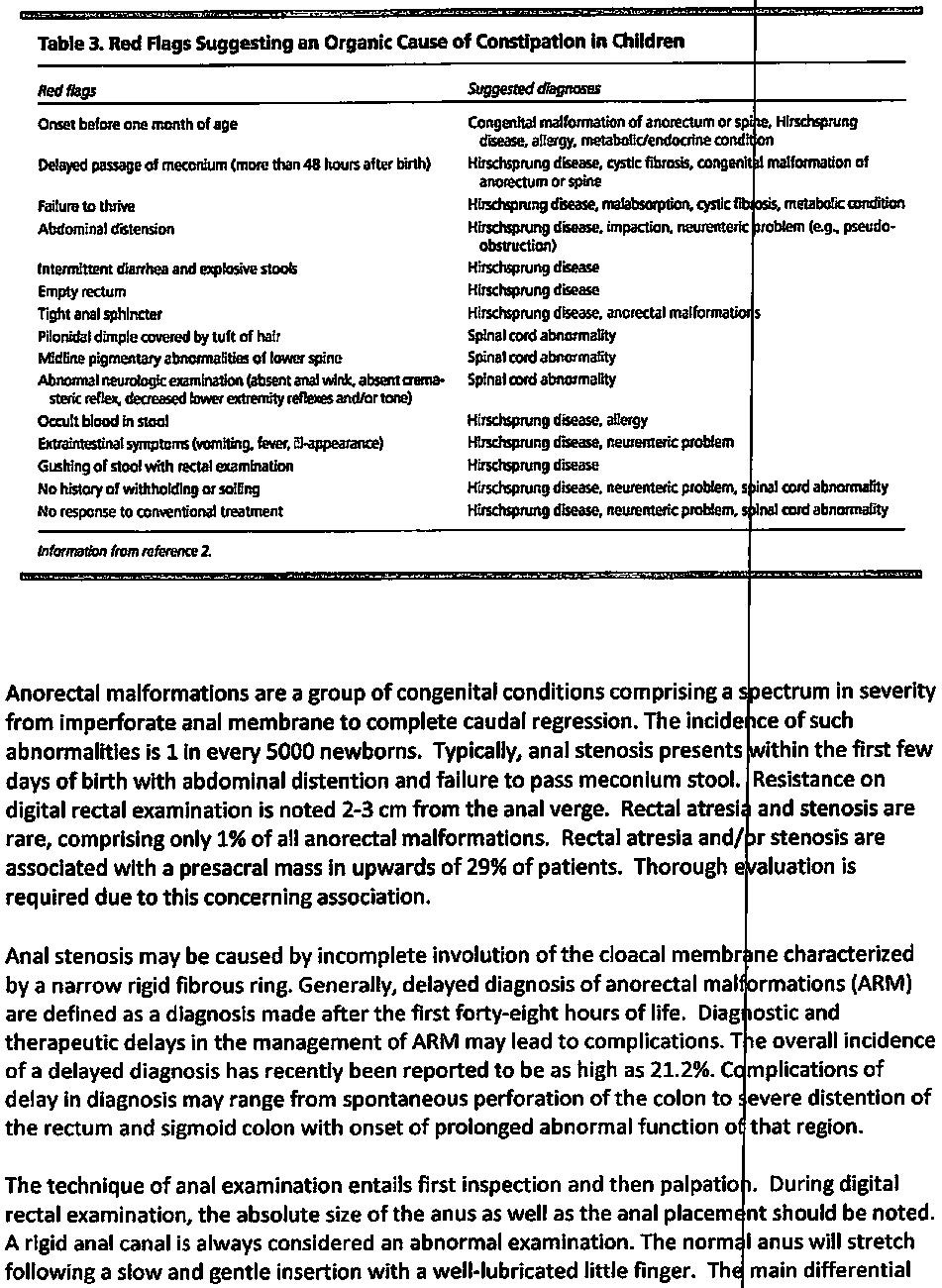
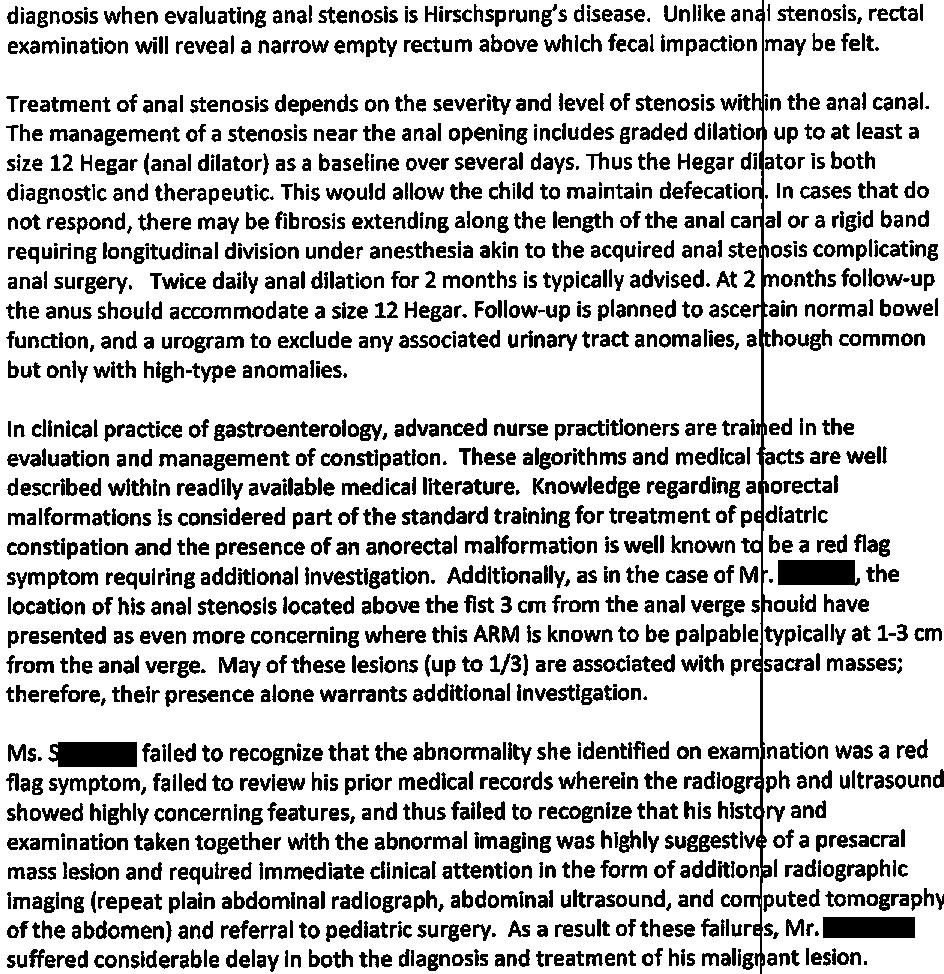


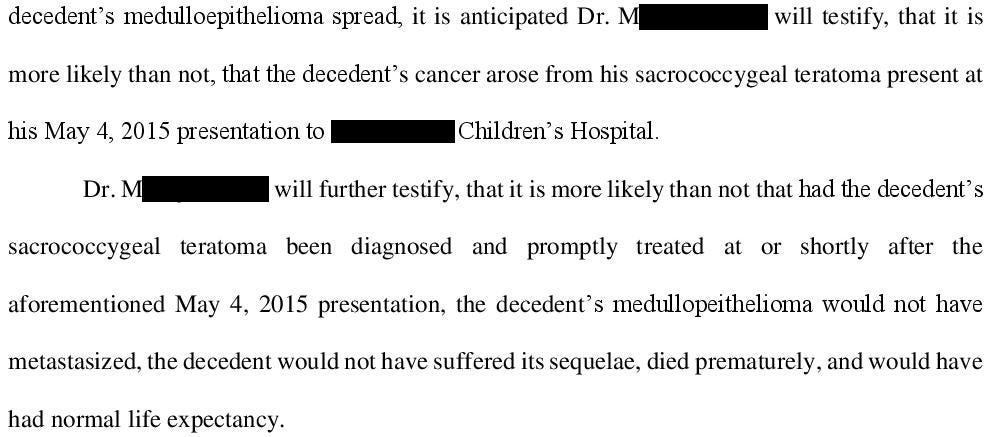
This was an unusual, rare disorder in a young child who responded to conservative therapy each time. I firmly believe that no provider should be liable for this horrible outcome and case.